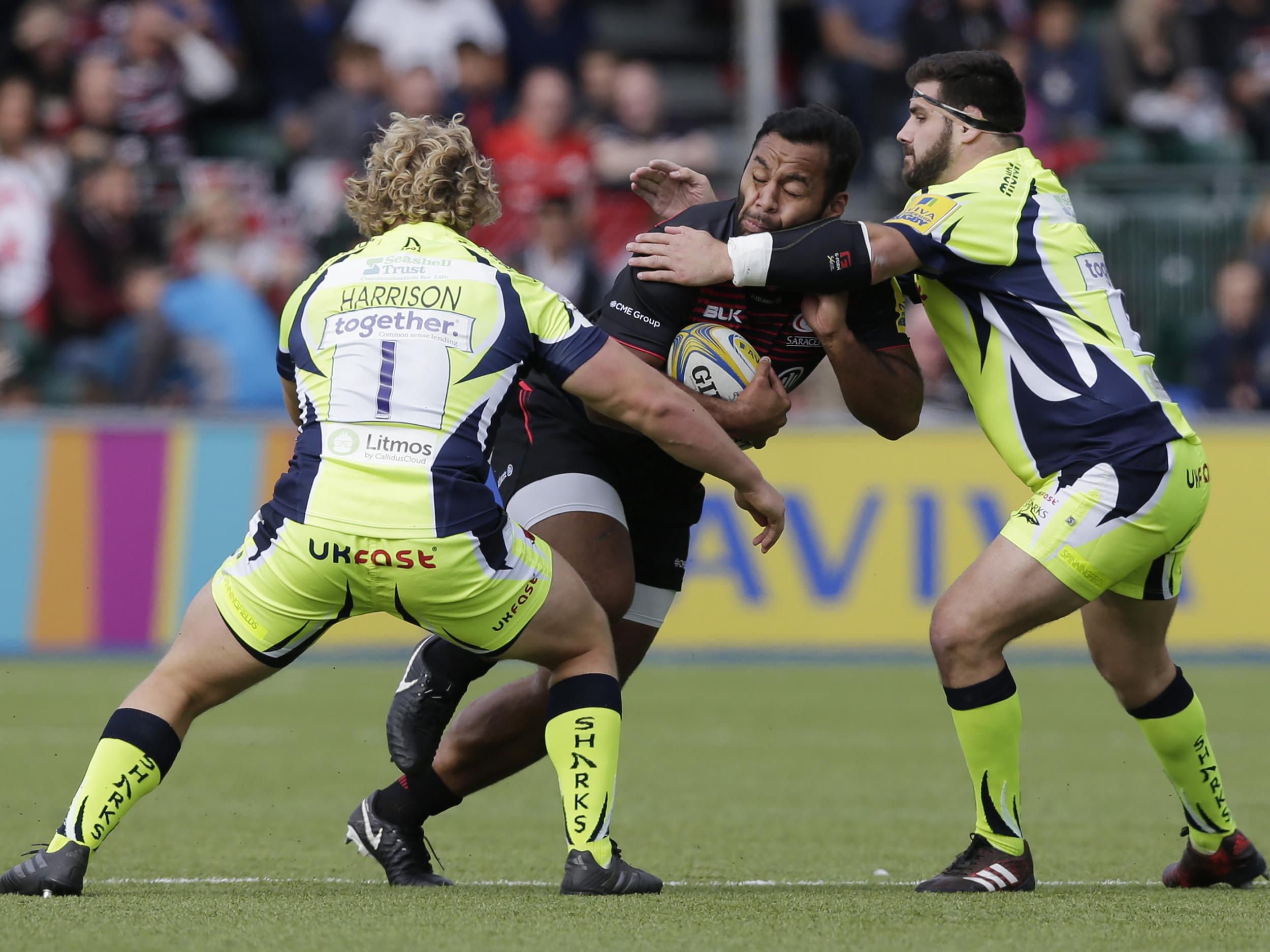Glut of injuries could be caused by new rule changes, RFU research shows
Study commissioned after number of coaches raise alarm bells over newly attritional game - although not everyone is convinced by the theory...

Your support helps us to tell the story
From reproductive rights to climate change to Big Tech, The Independent is on the ground when the story is developing. Whether it's investigating the financials of Elon Musk's pro-Trump PAC or producing our latest documentary, 'The A Word', which shines a light on the American women fighting for reproductive rights, we know how important it is to parse out the facts from the messaging.
At such a critical moment in US history, we need reporters on the ground. Your donation allows us to keep sending journalists to speak to both sides of the story.
The Independent is trusted by Americans across the entire political spectrum. And unlike many other quality news outlets, we choose not to lock Americans out of our reporting and analysis with paywalls. We believe quality journalism should be available to everyone, paid for by those who can afford it.
Your support makes all the difference.The glut of injuries in this season’s Aviva Premiership may be a consequence of more collisions created by recent rule changes in international rugby, according to new research by the RFU.
The rule changes, introduced by World Rugby in August, were designed to make the game “simpler to play and referee, as well as further promoting player welfare” – but, in the last instance at least, appear to have had the opposite effect.
There have been a series of high-profile injuries in the first six rounds of games in the Premiership and several coaches have raised alarm bells with the game’s administrators.
The “game trends summary data” research, revealed by the Daily Telegraph, shows there has been an 11.4 per cent rise in tackles per match (up from 150 to 167) and 8.8 per cent increase on “involvements” in games (up from 850 to 925) from the same stage last season.
Nigel Melville, the RFU’s director of professional rugby, believes the research shows players are now more heavily involved in defensive lines because the rule changes mean they are spending less time competing for the ball at the breakdown and scrum.
“The contact area is virtually not being challenged and there are fewer people in it and more players becoming defenders. If you reduce the contest for the ball at the ruck, you increase the number of defenders which puts the defenders on the front foot and puts more pressure on the attackers,” Melville said.
“So the attacking side is now getting more of the ball but also facing a greater number of defenders and we are therefore seeing more tackles. The increase in tackles is significant as it involves ‘double tackles’ and with greater line speed. And we found last year that it was not the tackled player that predominantly was injured but the tackler.”
That is a sentiment reflected by Wasps’ director of rugby, Dai Young, who at one point had a third of his squad unavailable through injury.
"It's hard to make judgments on just a month's research, but the game is going very much towards less kicking, keeping the ball for long periods, more contacts," Young said last week.
"It's very hard to protect the players."
Some have been more sceptical however. Data from Opta shows the rate of collisions (rucks and tackles) has risen steadily (by 9 per cent) over the past three seasons.
That would appear to suggest more of a long-term trend in how the game is being played rather than a one-off spike created by recent changes.
Either way, Melville says the rule changes will be monitored closely and if an increase in injuries is clearly linked once more data becomes available then they may well be reversed.
Join our commenting forum
Join thought-provoking conversations, follow other Independent readers and see their replies
Comments